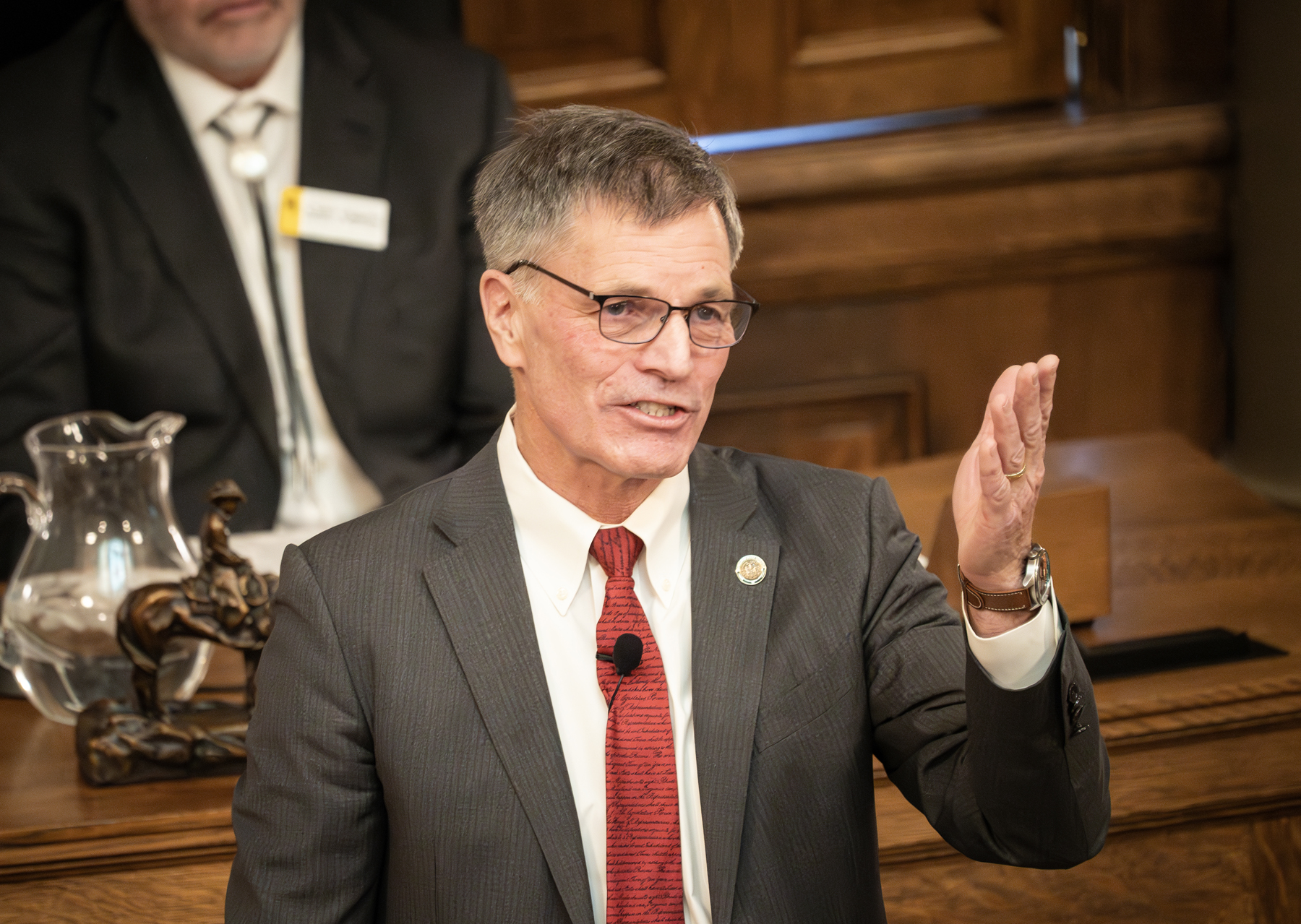Gordon defends school voucher bill that education officials criticize

Gov. Mark Gordon during the 2024 Legislative Session Photo by Michael Smith
BUFFALO — Gov. Mark Gordon signed HB0166 – Education Savings Accounts – into law, despite concerns that it may violate the Wyoming Constitution.
The new law allows qualified families to apply for up to $6,000 in state funding for their child's private educational expenses starting on Jan. 1, 2025.
To qualify, families must have a household income at or below 150% of the federal poverty level – $46,800 a year for a family of four in 2024. Eligible expenses include private school tuition, after-school program fees, instructional materials and tutoring. The act appropriates $20 million from the general fund for the purpose of the educational savings accounts.
Gordon made line-item vetoes that removed eligibility brackets for families above 150% of the federal poverty level before signing.
The version of the bill that landed on Gordon's desk allowed families with higher incomes – up to 450% of the federal poverty level – to apply for funding.
In his letter explaining his line-item vetoes, Gordon said he vetoed eligibility for families above 150% of the federal poverty level to give the bill a better chance of withstanding a court challenge. Gordon notes that the Wyoming Constitution prohibits the state from loaning, giving credit or donating to any individual, association or corporation, "except for the necessary support of the poor.”
“I have carefully considered the value of testing the issues raised in this bill's approach in court; but the possibility of failing entirely versus succeeding partially has prompted me to exercise my authority to veto specific portions of the bill,” he wrote.
Gordon noted other concerns with the constitutionality of the bill, as it includes religious schools, which is explicitly forbidden by the Wyoming constitution. He said he signed the bill in hopes that it could stand in court.
Another concern Gordon noted in his letter was how fluctuations in Wyoming's economy may redirect funds away from the program to cover shortfalls in public schools.
“I believe it is crucial for the State to proceed with caution and careful understanding of both the benefits and challenges associated with this personalized approach to education through ESA programs,” Gordon wrote. “And to reiterate, to make sure the experiment succeeds."
He wrote that he expects positive benefits to come from the act in the area of school choice.
In his line-item veto message, Gordon referenced the impact that increased diverse educational access will have on the public school system.
“While this legislation may pose challenges for the K-12 public school system, it may also bring the benefits associated with increased competition,” he said.
Johnson County School District No. 1 Superintendent Charles Auzqui said that competition already exists for public schools.
“Where K-12 public education used to be the only form of education for kids, now we have private school, home school, virtual school, charter schools. There are a lot of options out there,” Auzqui said. “Our responsibility is to provide education for all kids, so in that process we are now becoming part of the private industry.”
For all schools, it comes down to proving they can provide students with a quality education, but unlike private industry, public schools have a lot of federal and state requirements that are unique to them, he said.
Wyoming Education Association President Grady Hutcherson said in a statement that in addition to being unconstitutional, the bill siphons public funds away from the state's public schools.
“This bill becoming law is a massive blow to our public education system,” Hutcherson said. “It is a reckless, negative program that eats away at the already-limited resources available to support the 93% of students enrolled in our public schools. This is a devastating day for our public school system, and now all we can do is brace ourselves for the unquestionably negative impact school vouchers will have on students and families in our state.”
This story was published on April 11, 2024.






